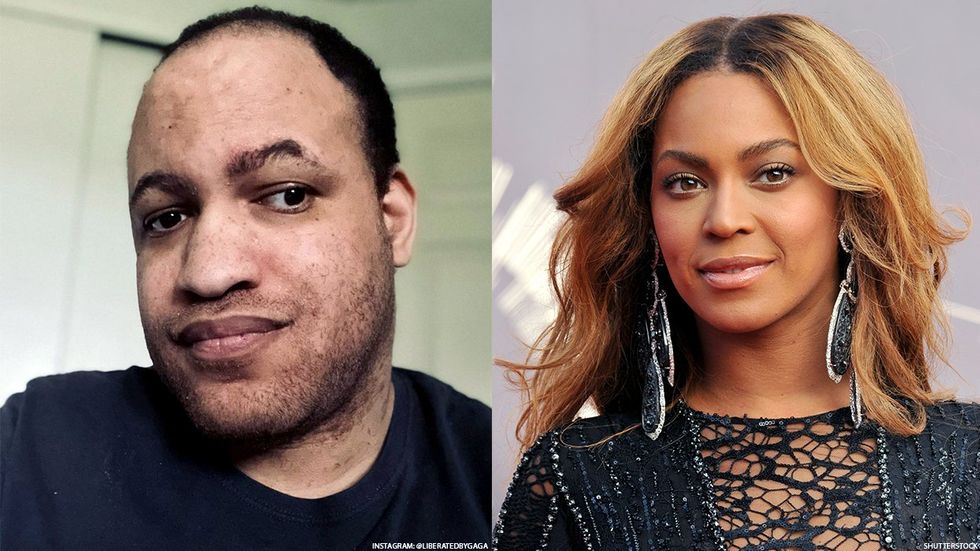While the Renaissance World Tour may be over, Beyoncé's commitment to her fans will be remembered.
In a remarkable display of empathy and awareness, global music icon Beyoncé made headlines recently when she helped rectify an airline’s misstep, ensuring a long-time fan with disabilities could enjoy her show.
Jon Hetherington, a fervent Beyoncé admirer, faced a disappointing hurdle in September when he was barred from boarding an Alaska Airlines flight to Seattle due to the size of his motorized wheelchair, which he relies on for mobility due to cerebral palsy. The airline personnel cited that the chair was “four inches too tall to be loaded onto the plane.”
A disheartened Hetherington, who identifies as pansexual, took to social media to share his ordeal, describing his 25-year-long anticipation to see Beyoncé live and how it was thwarted at the last minute.
“Well, I guess I’m not going to Seattle, and I’m not seeing Beyoncé,” he said dejectedly in a video.
However, the setback took a fortunate turn when Beyoncé’s publicist, Yvette Noel Schure, came across Hetherington’s post, Out, The Advocate’s companion publication reported.
In a swift move, arrangements were made for Hetherington to attend the Renaissance World Tour in Dallas. Seated on the floor close to the performing sensation, Hetherington’s joy knew no bounds as he shared his exhilarating experience on Instagram. His narrative, juxtaposed against the energizing atmosphere of the concert, spoke volumes about the stark contrast between what individuals with disabilities can experience with a touch of understanding and inclusivity.
"For the past, for Marsha, James, and Bayard," Hetherington wrote in an Instagram post with a pic of him at the concert, referring to LGBTQ+ activists Marsha P. Johnson, James Baldwin, and Bayard Rustin. "For the present, for O'Shae. For those who are becoming in a time that has yet to exist. We partied, we sang, we danced ... HARD. Beyhive, you made this happen, you pushed and tagged like the internet has never seen. Tonight, for the first time ever, I had a seat on the floor for a concert. Welcome to the RENAISSANCE."
This heartfelt intervention by Beyoncé's and her team underscores a broader societal issue that disability advocates have been vocal about.
In a conversation earlier this April, Ben Trockman, an activist and outreach and employment specialist who also navigates life in a wheelchair due to a spinal cord injury, spoke to The Advocate about the myriad challenges faced by individuals with disabilities in a largely non-inclusive environment. He recounted his harrowing experience of being unable to travel due to inaccessible transportation options, stating, “The world is not built for us, but that doesn’t mean we don’t want to be in it.”
Hetherington’s experience isn’t isolated but is part of a larger narrative that individuals with disabilities often encounter in various facets of life.
The recent advocacy work of Easterseals, a notable non-profit organization promoting equity for individuals with disabilities, echoes this reality. Their report released in April, titled “The State of Disability Equity and Access,” emphasizes the need for a rejuvenated approach toward the Americans with Disabilities Act, urging enhanced laws and civic engagement to meet the evolving needs of disabled individuals.
Trockman’s and Easterseals’ endeavor reflects a collective striving towards bridging the accessibility gap, a mission that finds resonance with Beyoncé’s recent gesture of inclusivity. The narrative accentuates how vital the support from influential figures like Beyoncé can be in steering the conversation toward a more inclusive society. Beyond just a heartfelt act, her team's gesture resonates with the essence of equity, urging a deeper understanding and action toward a more accessible and empathetic society.
In reflecting on the broader struggle for inclusivity, Easterseals’ recent report echoes the sentiment, “It is now time to ensure people with disabilities, older adults, and veterans have every opportunity to contribute to their communities and build lives of their choosing.”
Easterseals CEO and President Kendra Davenport expressed the gravity of the situation in a conversation with The Advocate in the spring.
“Americans who live with disabilities don’t want pity, and the vast majority of disabled people with whom I speak through my work tell me they wouldn’t change who they are or give up their disability because it is a part of what makes them who they are,” Davenport elaborated. “But what they demand is to be seen and afforded the ability to live full, happy lives like everyone else.”
Davenport emphasized the economic logic in catering to the needs of the disabled community.
“The disabled community has around $20 billion in discretionary income. So why isn’t anybody focusing on that?” she questioned. “It’s a vulnerability in the corporate sector. And whoever starts getting it right will realize terrific gains because the disabled community will get behind them.”
Davenport added: “We didn’t talk about breast health 20 years ago..I want us to make the same strides so that the most rudimentary information about disability becomes ubiquitous and more people understand it.”















































































